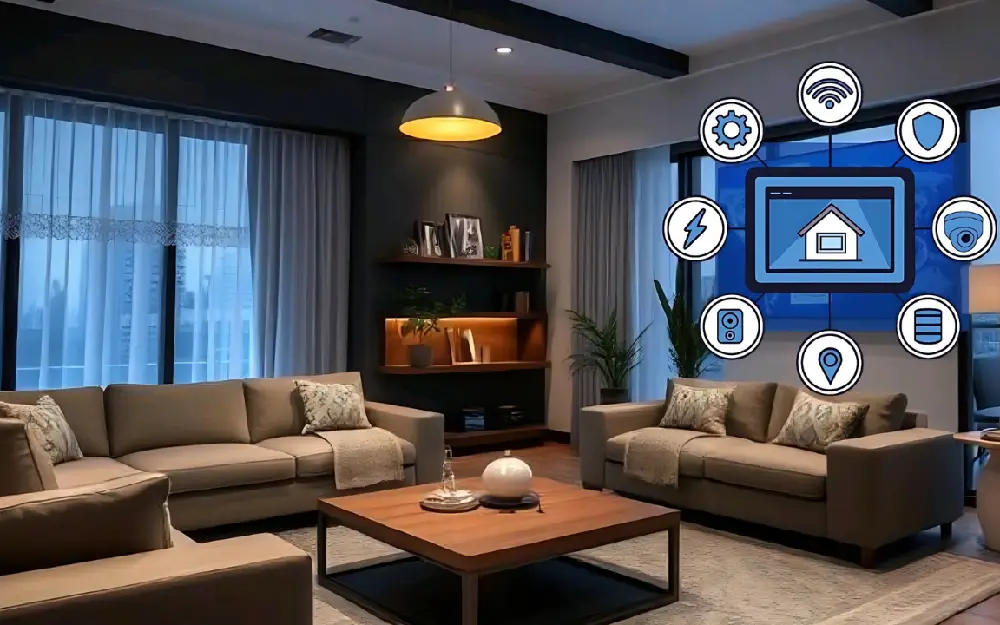
The Impact of Home Automation on Daily Life and Productivity
Home automation has significantly reshaped the way we live, offering both convenience and efficiency in ways that were once considered futuristic. As smart technologies become increasingly accessible and integrated into our homes, their influence on daily life and productivity is becoming more evident. This transformation is not just about controlling the temperature or lighting from your smartphone; it’s about optimizing the home environment to suit your needs in a seamless, intuitive manner. Let’s explore the impact of home automation on daily life and productivity, examining both the benefits and potential challenges.
1. Enhanced Convenience and Time Savings
One of the most immediate and noticeable effects of home automation is the time it saves. Tasks that once required manual effort, such as adjusting the thermostat, turning lights on or off, or starting household appliances, can now be done with a simple voice command or the touch of a button. For example, smart thermostats like the Nest can learn your schedule and adjust the temperature automatically, ensuring that the home is always at the right comfort level without you needing to make manual changes. This allows more time for individuals to focus on work, hobbies, or relaxation.
Smart home devices also facilitate seamless integration between different systems. You could create routines or "scenes" that adjust the lights, music, and temperature based on your preferences for certain activities, such as working from home, unwinding, or preparing for sleep. By automating these actions, people can avoid repetitive tasks and streamline their day-to-day routine.
2. Boosting Productivity
Home automation has a direct impact on personal productivity. For remote workers, managing household tasks can be distracting and time-consuming. Smart devices like robotic vacuums, automatic lighting, and even smart coffee makers can handle routine chores without requiring constant attention. This allows individuals to focus on their work without being interrupted by the need to perform these tasks manually.
Smart assistants such as Amazon’s Alexa, Google Assistant, or Apple's Siri have become indispensable productivity tools. They can set reminders, manage calendars, provide news updates, and even assist with hands-free communication, ensuring that your day stays organized. Smart home systems also allow for better control over the home office environment. Adjusting the lighting or controlling the climate with minimal effort can contribute to a more comfortable and productive workspace.
3. Energy Efficiency and Cost Savings
Home automation contributes to energy savings, which can indirectly enhance productivity by reducing the mental burden of managing energy use. Smart devices like energy-efficient lighting systems, smart thermostats, and intelligent appliances help optimize the usage of energy, ensuring that devices are only running when necessary. For example, lights that automatically turn off when no one is in the room, or thermostats that adjust based on room occupancy, contribute to reducing electricity costs.
By having greater control over energy consumption, homeowners can make more informed decisions about when and how to use resources, ultimately leading to a more sustainable and cost-effective lifestyle. This also frees up more time to focus on personal goals or professional tasks, rather than worrying about household energy usage.
4. Improved Safety and Security
Home automation improves not only the comfort of the home but also its safety. Smart security systems, including cameras, doorbell cameras, motion detectors, and automated locks, enhance the security of a household. Homeowners can monitor their property in real-time through their smartphones, providing peace of mind whether they are at home or away. Automated alerts can notify homeowners of suspicious activity or unusual events, improving response times and reducing potential risks.
Smart security features also contribute to overall productivity by ensuring that individuals can trust their home is secure. For instance, automatic locking systems prevent the need to double-check doors before leaving the house, and security cameras can track movements, reducing the need for manual surveillance.
5. Challenges and Considerations
Despite the many benefits of home automation, there are also challenges that need to be addressed. Privacy concerns are one of the biggest obstacles to widespread adoption of smart home devices. Many of these devices collect data about household routines, which, if not properly secured, can be vulnerable to hacking or unauthorized access. Homeowners must be vigilant about securing their devices, ensuring that passwords are strong, and keeping software up to date.
Additionally, the dependency on technology can be a double-edged sword. If devices malfunction or become outdated, it can cause inconvenience or disrupt routines. The initial cost of purchasing and installing smart home systems can also be prohibitive for some, making home automation an expensive investment. Furthermore, there is a learning curve involved in fully integrating and optimizing these devices to work together effectively.
Conclusion
The impact of home automation on daily life and productivity is profound. Smart technologies have made everyday tasks more convenient, helped boost productivity, and enhanced energy efficiency. With the right tools, people can optimize their home environments to be more responsive to their needs, creating a smarter, more efficient living space. However, the challenges of privacy, security, and cost cannot be overlooked. As technology continues to evolve, home automation will likely become even more integrated into our lives, offering further opportunities to improve how we live and work.
In the end, while home automation provides numerous advantages, careful consideration and responsible use are necessary to ensure that these benefits are fully realized without compromising security or personal privacy.
